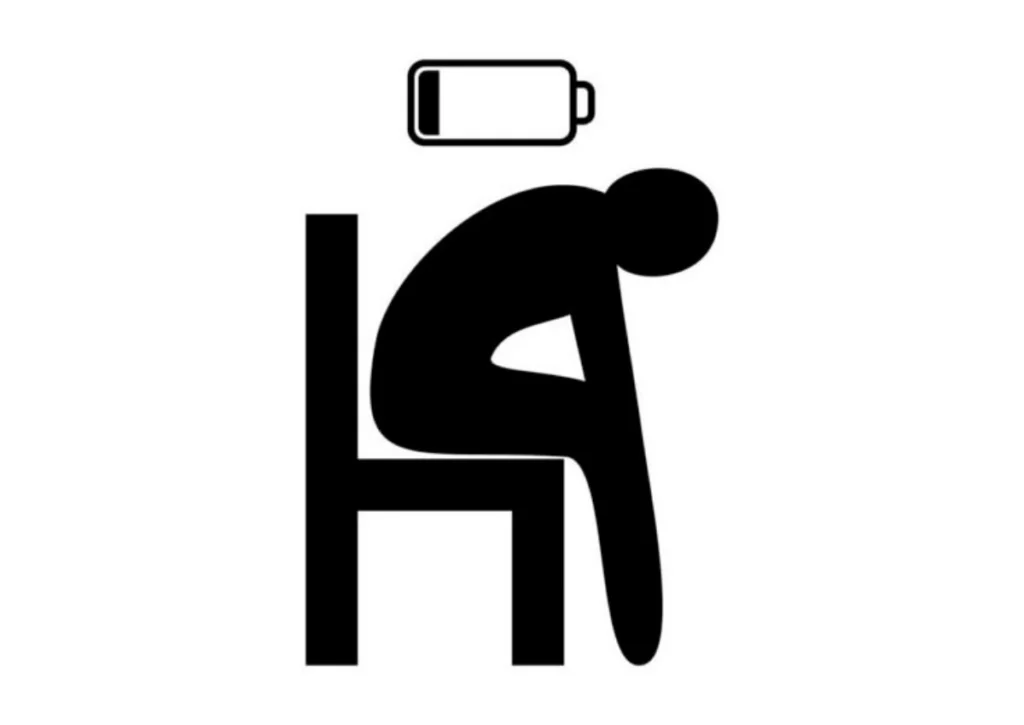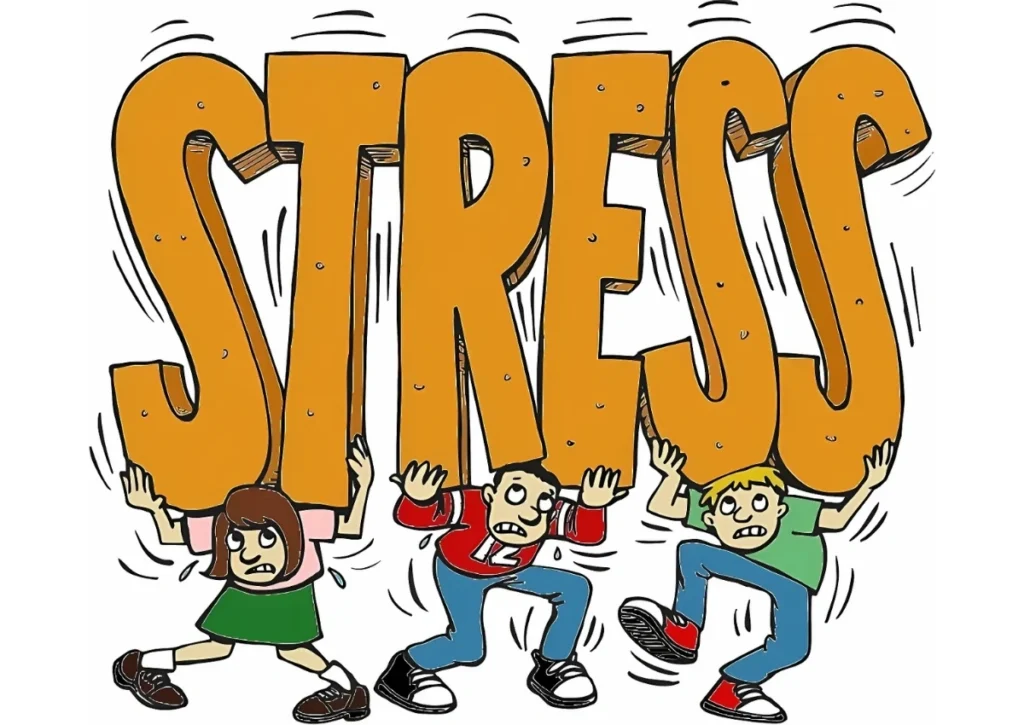
In the incessant buzz of contemporary existence, stress is an unbidden, but omnipresent, guest. The tambourine of work and relationships and money and society pressing and our screens screaming in our face can leave us frazzled and stressed out and exhausted and jittery. Though stress is a human instinct, an ancient alarm system meant to protect us, chronic stress – stress-the type that loiters like an invasive relative – can wreak havoc on our bodies, spirits, and minds.
Most of us turn to hacks, we muscle through the fatigue, or we just suppress the stress build-up until we reach a breaking point. What if there were a more sustainable, empowering way to sail through the stressful seas? Not one of covering up symptoms or running from reality, but one of cultivating resistance from the inside out?
This guide is your map to managing stress naturally. We’re going to dive headfirst into the mind-body connection, lifestyle hacks, and the key role nutrition plays in creating inner calm. Get ready to take back your peace, reconnect with your vitality, and build a powerful resilience that helps you do more than just survive to thrive under life’s unavoidable stress.

What is stress? Is it my friend or foe?
Before setting forth on the path of natural stress management, let’s first demystify stress. At essence, stress is your body’s default “fight or flight” response, a primitive survival instinct intended to assist you in reacting rapidly to danger. Confronted with a threatening situation, your adrenal glands secrete stress hormones such as cortisol and adrenaline, increasing your heart rate and alertness while energizing your muscles. This acute, short-term stress (sometimes referred to as “eustress”) can be positive – it makes you hit deadlines, perform in the clutch, or respond quickly to peril.
It’s a problem when this stress response becomes chronic. In our contemporary existence, the “threats” are seldom lions on the savanna and instead are bursting inboxes, infinite to-do lists, financial worries, or relationship drama. Our bodies, though, sometimes respond in kind. When the alarm is blaring nonstop, these elevated cortisol levels can start to erode your systems. This turns stress from a useful ally into a powerful enemy.
Identifying the Signs of Chronic Stress:
Physical – headaches, muscle tension (especially neck and shoulder), chronic fatigue, digestive problems (IBS, nausea), recurrent colds or infections, breakouts, appetite changes, unexplained pains.
Emotional: Irritability, anxiety, restlessness, overwhelm, mood swings, sadness, sense of dread or helplessness, loss of motivation.
Mental: Unable to concentrate, forgetfulness, thoughts are all over the place, worry all the time, bad at making decisions, feeling scatterbrained.
Insomnia or hypersomnia: eating habits (overeating or undereating), social withdrawal, substance abuse (alcohol, caffeine, nicotine), nervous habits (nail-biting, pacing).
What’s important about natural stress management is dealing with the source and cultivating long-term solutions. Though medication can be important in extreme cases, these holistic strategies enable you to get in tune with your body, develop internal resources, and build a life that supports calm and resilience naturally, before stress gets out of hand.
FIND YOUR INNER CALM
One of the most potent battlegrounds for organic stress control is wielding the subtle connection between your mind and body. These activities condition your nervous system to react in new ways to stress, engendering a deep feeling of internal peace.
My first. Mindfulness & Meditation:
What it is: beyond sitting cross-legged, mindfulness is all about being present and aware in the moment, noticing your thoughts, feelings, and sensations without any judgment. Meditation is a structured way to develop this consciousness.
Consistent practice can literally rewire your brain, reducing the size of the amygdala (the brain’s fear center) and increasing the strength of the prefrontal cortex (which controls rational thought). This results in less cortisol, better emotional regulation, improved focus, and the ability to be responsive rather than reactive to stressors.
- Start small: You don’t need more than five to 10 minutes a day. Practice guided meditations (Calm, Headspace, and Insight Timer are good apps to try). Practice mindfulness through your breathing alone (free-form mindful breathing), a body scan, or mindful eating.
- Deep Breathing Exercises (Pranayama)
Intentional, measured breaths that signal to your parasympathetic nervous system — your body’s inborn “rest and digest” mode.
“Slowing down the breath, and even more so deepening the breath, immediately decreases the heart rate, lowers blood pressure, and relaxes the muscles, sending the message to the brain that we are safe, which trumps the fight or flight response.”
Takeaway tips: Diaphragmatic (Belly) Breathing: Place one hand on your chest and another over your belly. Breath with your belly, not your chest Breath as you expand your belly, not your chest. Exhale slowly, controlling the drop of your belly. The 4-7-8: Gently breathe in through your nose for 4 seconds, hold your breath for 7 seconds, and then forcefully exhale through your mouth, making a “whoosh” sound, for 8 seconds. Do this 3-4 times.
Box Breathing (Four-Square Breathing) Inhale for 4, Hold for 4, Exhale for 4, Hold for 4. Do it again.
3. Yoga & Tai Chi:
Ancient mind-body practices that combine light physical postures, contemplative movement, performing attitudes, and meditation. Relieves muscle tension, improves flexibility and balance, promotes a greater mind-body connection, and helps calm your nervous system to support the release of anxious feelings. The meditative quality of these practices quiets your head noise.
Find some classes or online lessons and drop in! Focus on gentle, restorative yoga, or the unhurried, fluid movements of Tai Chi. Regularity trumps intensity.
4. PMR (Progressive Muscle Relaxation)
A technique where you deliberately tense, then relax, various muscle groups in turn throughout your body.
Teaches you how to notice and, more importantly, how to consciously release physical tension. It’s a great way to release somatic stress tension and relax.
Find audio tracks online of guided PMR. Lay back and simply listen — and follow what it says, flexing each muscle group, holding tight for 5–10 seconds, and then releasing fully.
5. Ecotherapy/forest bathing: Time spent with nature.
Consciously putting yourself in nature, taking in the sensual aspects of nature – the sights, sounds, and sense.
Studies have shown that time in nature can significantly lower cortisol, heart rate, improve mood, and reduce anxiety and depression. It roots you and puts things in perspective.
Take walks in the park, forest, or around the lake. Try gardening with only a few pots. Just get out to look at the trees, sky, and birds. Nature scenes alone can help downshift us.
6. Journaling.
The simple act of recording your thoughts, feelings, and experiences in a journal. It can be a good way to emotionally purge yourself, get perspective on stress, recognize triggering patterns, and work through complex feelings. It might be a gratitude tool, helping you reframe a mindset for gratitude for what you do have.
Spend 10-15 minutes a day. Don’t stress over grammar or structure, just free-flow your thoughts. Experiment with free-writing, a gratitude log, or a stress journal to monitor triggers and responses.
Creating a Robust Base

Mind-body techniques are critical, and constructing an iron-clad stress defense demands lifestyle basics that nurture your whole being.
1. Get your sleep – quality sleep, that is.
Sleep deprivation is a key stress magnifier. Not getting enough sleep makes you more irritable, less able to focus, and lowers your resistance to stress. It’s when your body rejuvenates and re-energizes.
Try to get 7-9 hours of good sleep each night. Set a sleep schedule (even on weekends). Make a soothing ritual at bedtime. Make your bedroom dark, cool, and quiet. Limit screen time (phones, tablets, TV) a minimum of one hour prior to bed. Skip the coffee and big meals near bedtime.
2. Daily exercise
Exercise is an inherent stressbuster. It releases endorphins, the body’s own mood elevators, as well as cortisol and adrenaline. It helps you sleep better and gives you a good way to blow off steam.
Tips: Discover what you truly like, be it power walking, dancing, bicycling, swimming, hiking, or team sports. Regularity trumps intensity. Strive for a minimum of 30 minutes of moderate exercise on most days.
3. Set Boundaries & Learn to Say No:
Overcommitment is the quiet stressor. Attempting to make everyone happy, or to cure the world, will leave you burned out and resentful, stressed out on a chronic basis.
Figure out what’s important to you. Be explicit about your boundaries. Habituate yourself to say no with grace. Because every time you say ‘no’ to something, it’s a ‘yes’ to you.
4. Time Management & Prioritization:
There’s nothing more stressful than feeling crushed under a mountain of work. Disorganization tends to result in procrastination and anxiety.
Make daily or weekly to-do lists. Segment big projects. Assume everything is urgent and important. Learn to outsource when you can. Don’t multitask, it sucks.
5. Develop close social connections.
We’re social animals. Robust social support is a crucial stress buffer. It gives you emotional reassurance, tangible assistance, and the feeling of being connected. Isolation can enhance anxiety and depression.
Also check:- How NGOs Are Revolutionizing Education for Underprivileged Children
Squeeze in some love – friends, family, partners. Participate in community-building activities — like clubs, volunteering, or group hobbies. Call on when you need a friend.
6. Engage in Hobbies & Creative Outlets:
Engaging in something you love is a great, productive stress-reliever, giving you something to focus on that induces a sense of accomplishment and creativity. It assists you in achieving ‘flow,’ the rare moment when you lose track of time and your mind is fully immersed in something good.
Dive back into an old hobby or take up a new one – painting, playing an instrument, reading novels, gardening, knitting, cooking, or anything else that makes you happy and relaxed.
7) Reduce risk (where possible):
Being routinely hit with bad news, toxic people, or social media overload can lead to chronic stress and anxiety.
Monitor your news intake – reduce time spent on news sites or social media feeds that irritate you. Establish limits with energy vampires. Think about digital detoxes or time limits on specific apps.
Feeding Your Skin: The Nutritional Link
What you consume has a big effect on your brain chemistry, which drives your energy and stress management ability. A properly nourished body stands a stronger chance of dealing with what life throws at it.

1. Balanced, whole-foods diet:
Eating your body’s weight in nutrient-dense, whole foods gives you the sustained energy—and the vitamins and minerals—required for an optimally functioning brain and mood. Junk foods that are loaded with sugar and bad fats can cause blood sugar highs and lows that fuel irritability and anxiety.
Think fruits, veggies, lean proteins, whole grains, and healthy fats. Limit processed foods, sodas, and too many bad fats.
2. Omega-3 Fatty Acids:
These critical fats are brain fuel and anti-inflammatory warriors. Studies indicate they may assist in alleviating anxiety and depression.
Add fatty fish (salmon, mackerel, sardines) two to three times per week. On the plant side, flaxseeds, chia seeds, walnuts, and hemp seeds.
3. Magnesium-Rich Diet
Magnesium is an essential mineral that participates in more than 300 biochemical reactions, including nerve and muscle function, and sleep. Stress can exhaust magnesium, which makes for a vicious cycle.
Add leafy greens (spinach, kale), nuts (almonds, cashews), seeds (pumpkin, sunflower), legumes, whole grains, and dark chocolate to your diet.
4. B Vitamins!
B vitamins (particularly B6, B9, and B12) are essential for nervous system health, energy metabolism, and the production of mood-regulating neurotransmitters such as serotonin.
Present in whole grains, legumes, eggs, lean meats, fish, and leafy green vegetables.
5. Limit Caffeine & Alcohol:
Though caffeine provides a momentary pick-me-up, too much can exacerbate anxiety disorder, interfere with sleep, and foster a loop of reliance that perpetuates strain. Alcohol, another depressant, could appear to calm you down in the beginning but ultimately, it can interfere with sleep, dehydrate you, and affect your mood.
Go easy on your afternoon caffeine. Watch your alcohol—it can disrupt both your sleep and your mood.
6. Water:
Mild dehydration can present as fatigue, poor concentration, and irritability – all of which can add to your stress.
Stay hydrated, all day long. Have a water bottle nearby as a visual cue.
7. Herbal Allies (Use with Caution & Professional Guidance):
Some herbs and adaptogens are classically employed to assist with stress.
Ashwagandha: An adaptogen — thought to help the body handle stress and lower cortisol.
Chamomile: notorious for its calming effects, frequently consumed in tea form to induce relaxation and slumber.
Lavender: Used in aromatherapy for its soothing effects, can be consumed as a tea.
Valerian Root: On the more esoteric side, a popular herbal sedative, commonly used for insomnia and anxiety. Always talk to a health professional, particularly if you’re taking medication, have some underlying health issues, or are pregnant/breastfeeding. Herbal supplements can interact with medications and cause side effects.
When to Go to the Doctor

It’s important to know when to see a professional. If your stress feels unmanageable, is interfering with your daily life, causes chronic physical symptoms, or is accompanied by hopelessness, crippling anxiety, or depression, contact a doctor, therapist, or counselor. They can offer tailored treatment plans, medication if appropriate, and steer you on your way to recovery.
Natural stress management is not a quick patch, but rather an ongoing process of self-awareness, self-care, and deliberate living. It’s about stitching together a tapestry of meditation, lifestyle, and nutrition habits that collectively fortify your internal strength. There’s no magic formula – it’s about trial, error, and intuition, finding that ritual that really makes you feel calm and potent.
Commit to consistency, be kind to yourself, and never forget that each incremental advance you make toward stress management, naturally, is a bold statement of faith in your future self. By mastering your stress response, you enable yourself to not simply survive life’s pressures, but to thrive. You discover serenity within the storm and radiate brilliance from the inside out.




